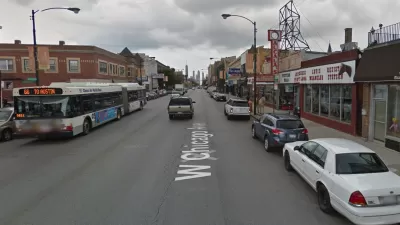Citizens and businesses owners are actively involved in modernizing parking policies and assets in San Diego in a district by district approach, writes San Diego parking guru Bill Keller.

In San Diego, old auto-oriented expectations, like free parking, die harder than in bigger denser cities like San Francisco and Chicago, writes downtown retailer-turned-parking-activist Bill Keller.
In San Diego, despite the growing population and a tightening supply, many locals still expect free parking – especially in beach communities. San Diego currently has about 5,700 metered spaces mostly charging a top rate of $1.25 per hour. Nearly all the metered spaces are in Uptown and Downtown where parking is a hot topic at neighborhood meetings.
Therefore, modernization of public parking management, particularly metered parking, has been slower and more incremental than in those bigger cities. The city has implemented a "community-up" district by district approach, creating Community Parking Districts. "This low-tech, neighborhood-up approach has become the hallmark of parking management in San Diego," writes Keller. It has empowered neighborhood residents and businesses to play a major role in setting parking policy. For example,
Since 2004, the Downtown Parking Management Group*, a volunteer board of residents and business members, has worked with City staff to improve utilization of street parking. An early pilot program targeted sections of East Village, Cortez Hill and the Marina District with very low meter usage . . .
During the pilot, for example, street parking in the Gaslamp Quarter remained at $1.25 per hour with a two-hour limit while several blocks of East Village from Eighth Ave to Park Blvd were converted to $1 per hour with a four-hour limit. East of Thirteenth, rates dropped to $.50 per hour with a nine-hour limit. This offered price sensitive workers and residents an option to walk a little and save.
The experiment worked. Over a two year period, meter utilization was up 106% and (despite the drop in rates) meter revenue was up 89%.
This community-based approach has resulted in a number of other incremental changes and refinements to metered parking which has both increased parking meter revenue and parking supply. More details are in the two part articles on UrbDeZine, with a third installment yet to come.
FULL STORY: Parking Management: San Diego Style (Part Two)

Planetizen Federal Action Tracker
A weekly monitor of how Trump’s orders and actions are impacting planners and planning in America.

San Francisco's School District Spent $105M To Build Affordable Housing for Teachers — And That's Just the Beginning
SFUSD joins a growing list of school districts using their land holdings to address housing affordability challenges faced by their own employees.

The Tiny, Adorable $7,000 Car Turning Japan Onto EVs
The single seat Mibot charges from a regular plug as quickly as an iPad, and is about half the price of an average EV.

San Diego Votes to Rein in “Towering” ADUs
City council voted to limit the number of units in accessory buildings to six — after confronting backyard developments of up to 100 units behind a single family home.

Texas Legislature’s Surprising Pro-Housing Swing
Smaller homes on smaller lots, office to apartment conversions, and 40% less say for NIMBYs, vote state lawmakers.

Even Edmonton Wants Single Staircase Buildings
Canada's second most affordable major city joins those angling to nix the requirement for two staircases in multi-family buildings.
Urban Design for Planners 1: Software Tools
This six-course series explores essential urban design concepts using open source software and equips planners with the tools they need to participate fully in the urban design process.
Planning for Universal Design
Learn the tools for implementing Universal Design in planning regulations.
Borough of Carlisle
Smith Gee Studio
City of Camden Redevelopment Agency
City of Astoria
Transportation Research & Education Center (TREC) at Portland State University
City of Camden Redevelopment Agency
Municipality of Princeton (NJ)





























